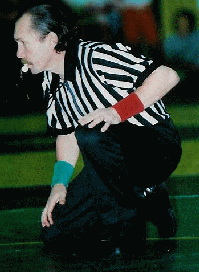Making The Call ...
Do you have a question regarding wrestling rules and their interpretations?In an effort to promote a fuller understanding of the rules of our sport, Dr. Bill Welker will field your inquires and reply on this page. Dr. Welker is an active Wrestling Official and experienced in wrestling rules interpretation.
You may submit inquiries directly to Dr. Welker at mattalkwv@hotmail.com.
Important notes:




